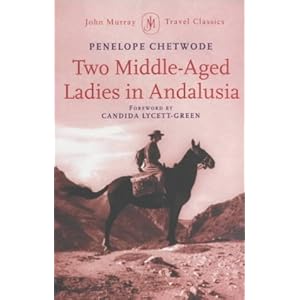In the post, What I Learnt This Summer (1) I mentioned en passant the book "Driving Over Lemons". In fact I called it "drivel" - and I see no need to change my mind.
There are too many of the starry-eyed romantic books about Spain written by (upper) middle-class types who come to experience the "real" Spain and end up patronising the local characters whose goodwill they abuse and who they treat condescendingly as charming oafs.
As I said in the first discussion on the theme, Spain is a modern country like the rest of Europe. We can find the same oafs in England, France, or wherever. Indeed, Eric Newby wrote a similar sort of book about his villa in Italy - with similar tooth-gritting smugness. The worst offender of this genre, however has to be Laurie Lee's "As I walked out..." which is in parts nothing more than the tales of what we would term in modern parlance as a sexual tourist who sleeps with his hosts' daughters and pays a few pennies for the service, salving his conscience with the knowledge that he has alleviated their grinding poverty with a bit of grinding of his own. In my opinion this is a scandalous book and does not deserve the reputation it seems to enjoy among the trendy left.
It was a delight, therefore, when a good friend lent me a book called "Two Middle-Aged Ladies in Andalusia" written by Penelope Chetwode, John Betjeman's wife. The second middle-aged lady is her mare, La Marquesa, borrowed from the Duke of Wellington. The book is Chetwode's account of her travels on horseback around the provinces of Granada and Jaén in 1961 This is a truly charming book, with none of the wide-eyed faux innocence of the Romantic traveller. My only gripe is Chetwode's frequent mentions of her religiosity.
The author has a light, humorous style and portrays the villages of eastern Andalusia in the early 1960's without the mawkish condescension that is so annoying in many other British travellers in Spain, whatever the period. She describes things as they were then, no romanticism and no (excessive) politicking. Here is a beautiful description of village kids in Don Diego:
The... children are clean and well-dressed in brightly coloured jerseys and home-made skirts or trousers. They cannot afford the luxury of expensive shoes but wear rope-soled canvas ones or sandals. I saw no sign of rickety legs and they have lovely skins and beautiful teeth... no ice cream van drives past... No cake shop tempts them with cardboard éclairs stuffed with mock cream and they have no pocket money... to buy sweets. But theirs is not the the starvation-level poverty of the east; their daily diet is of [broths] and [stews]and excellent bread and fresh fruit, and occasional eggs and fish, [which] together with nine months' sunshine in every year turns them into beautiful specimens of humanity and they doubtless have tougher bodies and better teeth than a lot of over-indulged children in our welfare state."
In this extract, as in most of the book, here is no mention of politics, apart from some rather embarrassing praise of Franco as Saviour of Spain and Catholicism but even so she only dedicates a couple of paragraphs to the old gentleman. There is definitely no breast-beating, no romanticism - just a straightforward description of happy, able-bodied children whose lifestyle and diet were probably a lot better than their British counterparts of the same period, something which, I would venture to opine, still holds true today.
The book is a delight and I am recommending it to students, friends and family alike.


Just between you and me (and if you promise not to tell anyone), Chetwode's book is near enough contemporary with my own first foray into Spain. It's funny to think that she and I might (almost) have passed one another on the roads of Southern Spain.
ReplyDeleteI, however, was young and terribly innocent and probably missed more than I ever absorbed of that unique country during my adventure in Franco's Spain. I clearly ought to get this book and see whether it stirs any echoes of those distant days.